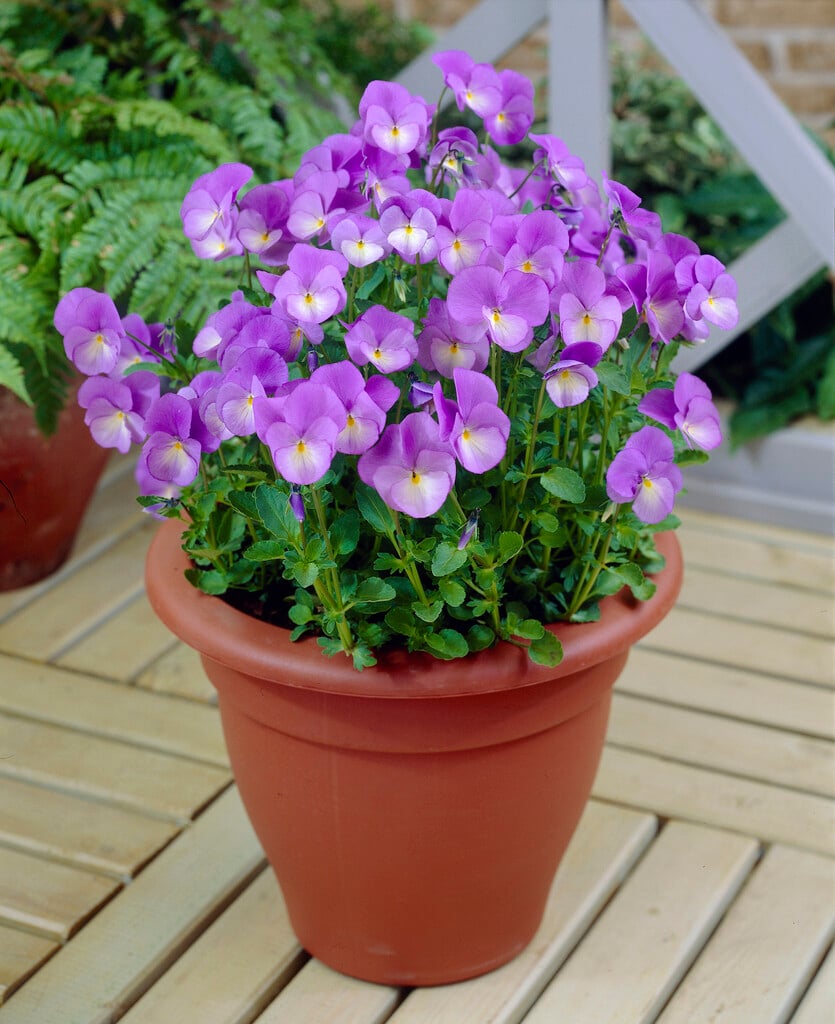Viola 'Maggie Mott' (Va)
viola 'Maggie Mott'
A compact evergreen perennial to 20cm high, with ovate, shallowly lobed leaves. Produces strongly fragrant, pale silver-mauve flowers, flushed cream on the lower petals and with yellow centres, on upright stems from spring to midsummer

Buy this plant
Size
Ultimate height
0.1–0.5 metresTime to ultimate height
2–5 yearsUltimate spread
0.1–0.5 metresGrowing conditions
Moisture
Moist but well–drainedpH
Acid, Alkaline, NeutralColour & scent
| Stem | Flower | Foliage | Fruit | |
| Spring | Purple Cream | Green | ||
|---|---|---|---|---|
| Summer | Purple Cream | Green | ||
| Autumn | Green | |||
| Winter | Green |
Position
- Full sun
- Partial shade
Aspect
East–facing or South–facing or West–facing
Exposure
Sheltered Hardiness
H5Botanical details
- Family
- Violaceae
- Native to GB / Ireland
- No
- Foliage
- Evergreen
- Habit
- Clump forming, Bushy
- Genus
Viola can be annuals, biennials or deciduous or evergreen perennials, with simple or pinnately lobed leaves and 5-petalled flowers of characteristic shape
- Name status
Accepted
- Horticultural Group
- Violas are compact reliably perennial, clump-forming plants with a complex root system and rounded, more or less fragrant flowers, often with darker rays, over a long period in late spring and summer
How to grow
Cultivation
Grow in fertile, humus-rich, moist but well-drained soil in full sun or partial shade
Propagation
Propagate by seed sown in containers in a cold frame as soon as ripe, or by softwood cuttings in spring or late summer
Suggested planting locations and garden types
- City and courtyard gardens
- Cottage and informal garden
- Patio and container plants
- Rock garden
- Coastal
- Banks and slopes
- Flower borders and beds
- Underplanting of roses and shrubs
- Garden edging
Pruning
Deadhead to prolong flowering. After flowering, cut back vigorous plants to maintain shape
Pests
May be susceptible to slugs, snails, aphids, red spider mites and violet leaf midges
Diseases
May be susceptible to leaf spot, powdery mildews, rust diseases and virus diseases
Get involved
The RHS is the UK’s gardening charity, helping people and plants to grow - nurturing a healthier, happier world, one person and one plant at a time.